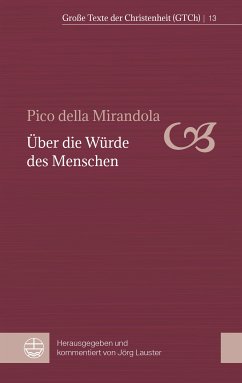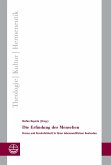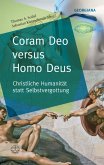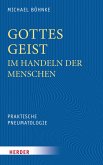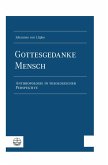»Phönix der Geister« nannten ihnen seine Zeitgenossen, von einem Mozart für Philosophen spricht einer seiner besten Kenner in der Gegenwart. Pico della Mirandola wurde in seinem kurzen Leben vor allem für eine Rede berühmt, die ihn der Papst nie halten ließ, die »Oratio de dignitate hominis«. Sie gilt als ein Glanzpunkt des Menschenverständnisses der Renaissance, das tief in der christlichen Tradition wurzelt. Pico interpretiert die Erschaffung zur Gottebenbildlichkeit als Auftrag, das Menschsein in freier Selbsttätigkeit als Angleichung an Gott zu gestalten. Seine Einsichten zu Menschenbild und idealer Lebensführung stützt er auf ein umfassend philosophisch-theologisches Programm, das nicht nur Christentum, antike Philosophie und Weisheitstraditionen, sondern auch Christentum und Judentum miteinander versöhnen will. [De Dignitate hominis] His contemporaries called him the »Phoenix of the wits«; one of his best contemporary connoisseurs speaks of a Mozart for philosophers. In his short life, Pico della Mirandola became famous above all for a speech that the Pope never let him deliver, the »Oratio de dignitate hominis.« It is considered a pinnacle of the Renaissance understanding of human beings, deeply rooted in the Christian tradition. Pico interprets the creation into the image of God as a mandate to shape the human condition in freedom as an assimilation to God. He bases his insights into the image of God and the ideal way of life on a comprehensive philosophical-theological program that seeks to reconcile not only Christianity and ancient philosophy and traditions of wisdom, but also Christianity and Judaism.
Dieser Download kann aus rechtlichen Gründen nur mit Rechnungsadresse in A, B, BG, CY, CZ, D, DK, EW, E, FIN, F, GR, H, IRL, I, LT, L, LR, M, NL, PL, P, R, S, SLO, SK ausgeliefert werden.
Hinweis: Dieser Artikel kann nur an eine deutsche Lieferadresse ausgeliefert werden.

